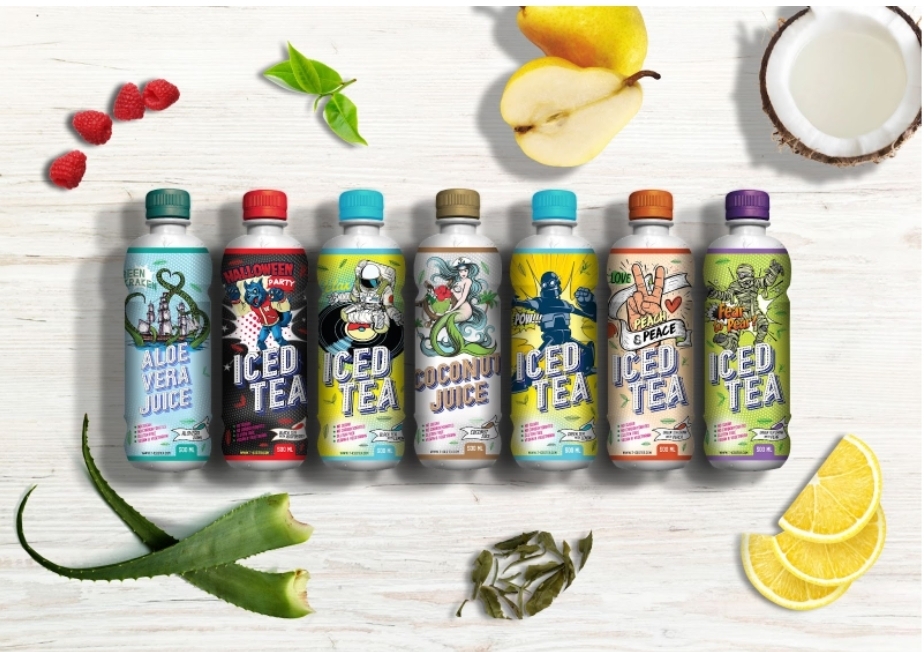
Our schools have long been responsible for nourishing the minds of our future generations, but what about their bodies? Outdated nutrition standards in some schools across the country continue to fall short, especially when it comes to beverages. While much has changed in the world of nutrition, the same cannot be said for many school lunch programs. In this article, we'll explore how antiquated regulations have failed to keep up with the evolving landscape of the beverage industry, shedding light on the hidden pitfalls of popular choices like juice and milk, while also discussing newer, healthier alternatives like T Iced Tea.
The Sugar Trap: Juice Drinks
Many school cafeterias offer juice drinks as a seemingly healthy option. However, what often goes unnoticed is the alarmingly high sugar content in these beverages. The American Heart Association recommends that children aged 2 to 18 consume less than 25 grams (6 teaspoons) of added sugars per day. A single serving of some juice drinks can contain nearly or even exceed this daily limit, contributing to childhood obesity, diabetes, and tooth decay.
The problem lies in the outdated perception that fruit juices are equivalent to whole fruits. In reality, these juices often lack essential fiber, which mitigates the impact of sugar absorption, and are packed with added sugars and preservatives. Modern research indicates that high sugar intake can have detrimental long-term effects on children's health, but old nutrition standards have yet to catch up with these findings.
The Milk Debate: Not as 'Moo-velous' as It Seems
Milk has long been a staple in school lunch programs, often touted as an excellent source of calcium and essential nutrients. However, recent studies and changing dietary preferences have shed light on the potential drawbacks of this practice.
Firstly, many children are lactose intolerant or have dairy allergies, making milk consumption not only uncomfortable but potentially harmful to their health. Secondly, the notion that milk is the best source of calcium has been challenged by a growing body of research suggesting that non-dairy sources like leafy greens, tofu, and fortified plant-based milk can provide an equally adequate calcium intake.
Moreover, low-fat and fat-free milk options, promoted as healthier alternatives, can rob children of essential dietary fats required for proper brain development and overall health. The belief that low-fat milk is a universally better choice is an outdated notion that needs revision.
The New Players: T Iced Tea and Other Healthy Alternatives
In today's market, there are healthier, natural beverage options that are free from excessive sugars, artificial sweeteners, additives, and artificial coloring. T Iced Tea is one such example, proudly boasting its commitment to natural ingredients and the absence of added sugars. These new, innovative products align with modern nutrition recommendations, focusing on transparency and clean labeling.
It's essential for school nutrition programs to recognize and embrace these healthier alternatives. While it's crucial to be cautious with the introduction of new products, current nutrition standards often don't consider innovative beverages that have undergone extensive research and development to ensure they meet health-conscious demands.
The Need for a Beverage Industry Review
The call for updating nutrition standards in schools goes hand in hand with the need for a comprehensive review of the beverage industry. The introduction of healthier alternatives like T Iced Tea demonstrates that it is possible to provide students with beverages that promote their health and well-being without compromising on taste or convenience.
Outdated nutrition standards are failing our children in their quest for a healthy diet. It's time for a fresh look at school nutrition, incorporating the latest research, and encouraging the adoption of modern, healthy beverage choices. Only through collaboration between educators, nutritionists, and the beverage industry can we ensure that our children grow up with the best possible nutritional foundation for their futures.
For more info visit: Tea.Industries
Source: Story.KISSPR.com
Release ID: 793769
